Transformation Report via LeapLogic Express
This topic provides a comprehensive report on EDW transformation via LeapLogic Express. The Transformation stage contains two sections-Transformation and Assessment Report.
In this Topic:
Transformation
This stage provides the details of the logic and scripts that are transformed or not transformed into the target compactable scripts.
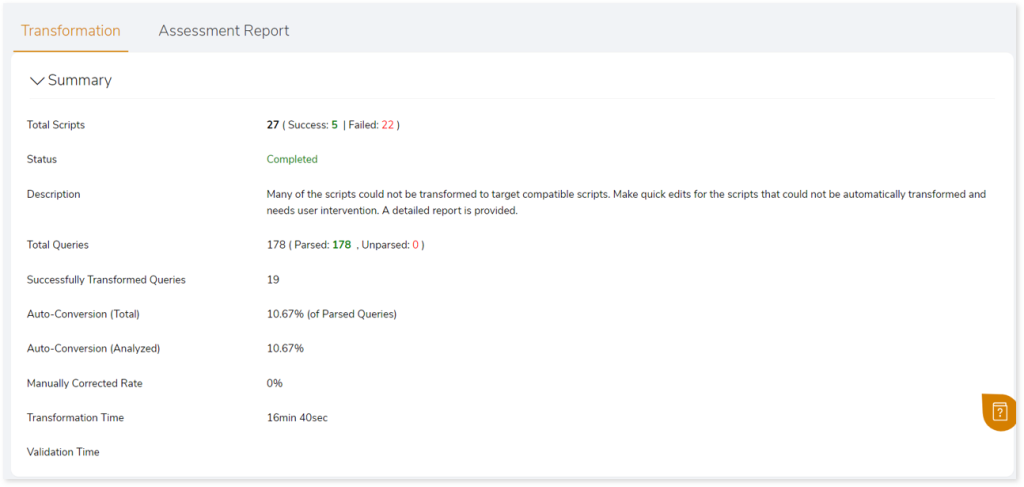
- Total Scripts: Displays the number of scripts you have given as input in the transformation stage. It also gives a segregated view of how many scripts were successfully transformed and how many failed.
- Status: Provides status of the Transformation stage.
- Description: A brief description of the stage is displayed.
- Total Queries: Display the total number of queries present in the scripts along with the number of parsed and unparsed queries.
- Successfully Transformed Queries: Displays the number of queries that have been successfully transformed.
- Auto-Conversion (Total): Displays the auto-conversion percentage of parsed queries.
- Auto-Conversion (Analyzed): Displays the auto-conversion percentage of analyzed queries.
- Manually Corrected Rate: Give the percentage of manually corrected queries that are required to transform to the target.
- Transformation Time: The time taken for transformation.
- Validation Time: The time taken for validation.
The Transformation section contains three sub-sections. The sub-sections include:
Report
This topic shows a comprehensive report of the converted artifacts. The left panel lists all the input files along with the file-wise transformation percentage. The right panel shows information about the selected file. It includes information about the original and transformed queries, status and more.
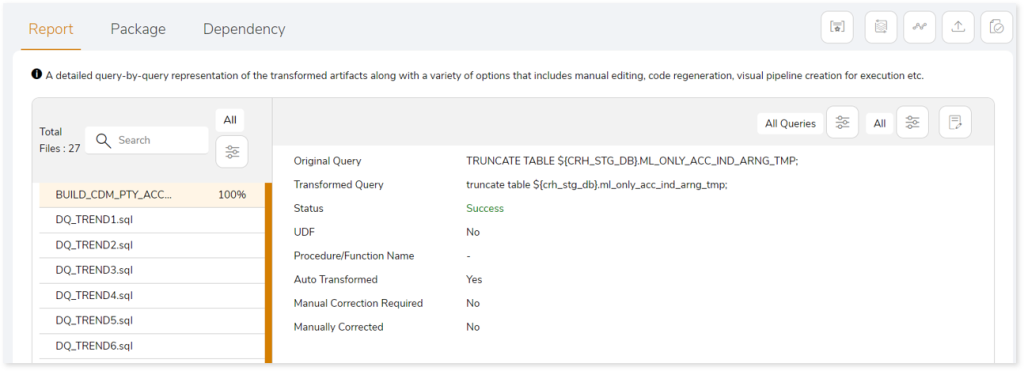
In addition, you can also take a variety of actions, including:
|
Feature |
Icon |
Description |
|
Query Recommendation |
 |
To get instant recommendations for improving the performance of the queries based on best practices for query construction. To apply Query Recommendations, choose:
- Apply All: To apply query recommendations to all the queries.
- Custom Selection: Specify the queries to apply query recommendations. To do so,
- Click Custom Selection.
- Select the queries by checking the check boxes of respective queries.
- Click
 to get the recommendation for query optimization. to get the recommendation for query optimization.
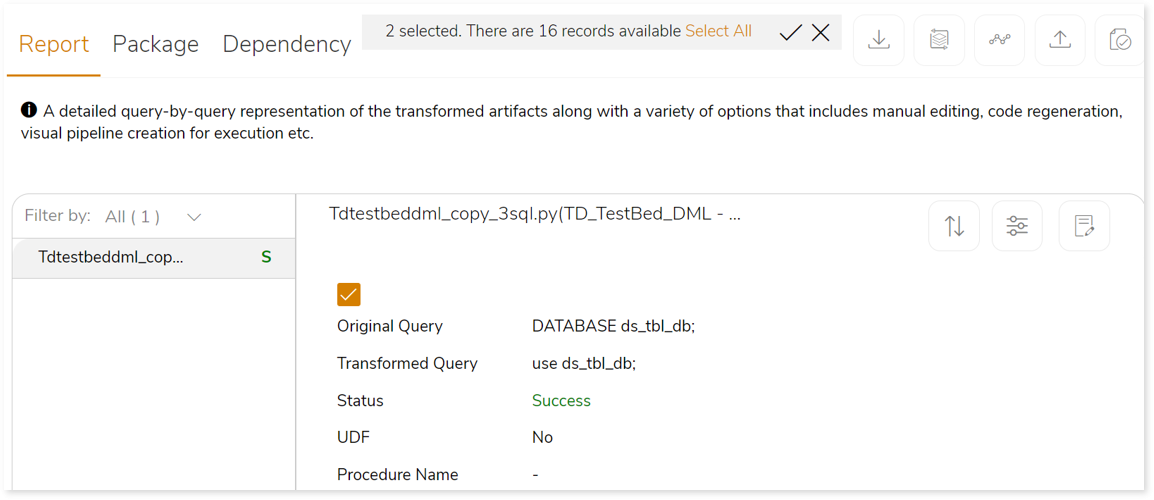
If the recommendations for query optimization are carried out successfully, the system generates a snackbar popup to notify the success.

|
|
Download |
 |
Download the transformed artifacts (sh scripts, java files, etc.), validation report, and executable jar file as a zip. |
|
Regenerate |
 |
Edit the transformed queries using the notebook-based online editor. Update and repackage your code after making the necessary changes to apply the updated query. The Regenerate feature helps to update and repackage your query in the Transformation stage.
If the artifacts are updated successfully, the system generates a snackbar popup to notify the success.  |
|
Create Pipeline |
 |
The transformed code can be reformed into a visual pipeline on the Stream Analytic platform where the transformed code can be orchestrated and executed effortlessly. |
|
Update |
 |
To upload the updated query files to replace the manually corrected queries:
- Click
 . .
- Upload the updated query file (.xlsx or .xls file) in the Update field to replace the auto-transformed queries with the manually corrected queries.
- Enable Includes Header toggle if the first row contains column names in the uploaded files.
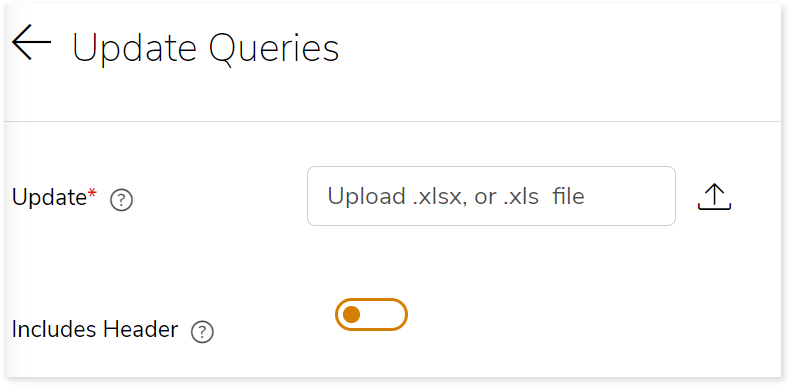
|
|
Validate |
 |
To validate the replaced queries. |
|
Compare |
 |
Line-by-line comparison of the transformed queries and the source queries to identify the changes.  |
|
Edit |
 |
To manually edit failed queries using the Notebook-based online editor. Furthermore, you can repackage the updated code with the Regenerated option. To do so,
- Click
 . .
- Make the necessary changes in the transformed queries.
- Click
 to update the queries. to update the queries.
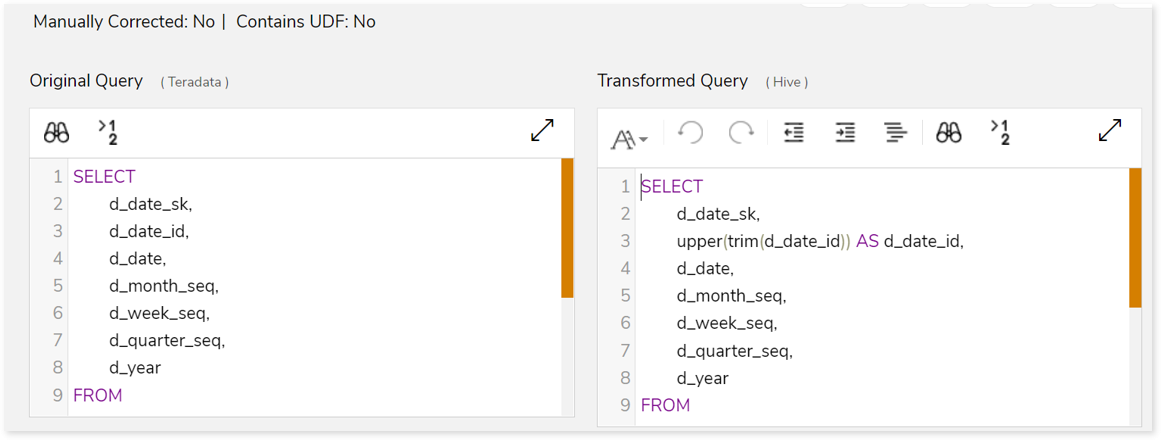
|
|
Sort |
 |
To sort the queries. You can sort the queries based on:
- All Queries
- Success Queries
- Failed Queries
- Manually Corrected
- Recommendation: Yes
- Recommendation: No
|
|
Filter |
 |
To filter the queries based on the query type. |
|
View Notebook |
 |
To manually edit failed queries using the Notebook-based online editor. Furthermore, you can repackage the updated code with the Regenerated option. To do so,
- Click
 . .
- Make the necessary changes in the transformed queries.
- Click
 to update the queries. to update the queries.
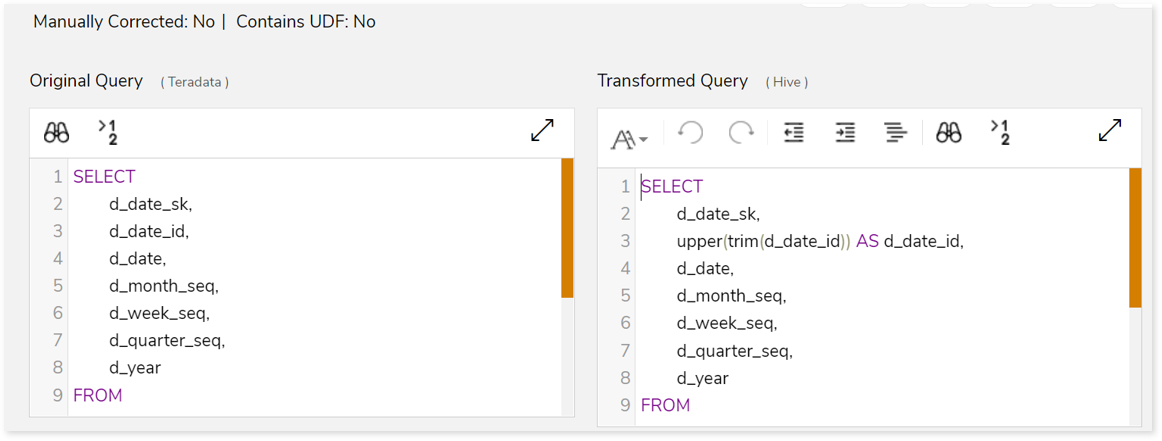
|
Package
This section provides a detailed report of the converted artifacts containing sql files along with an executable jar file.
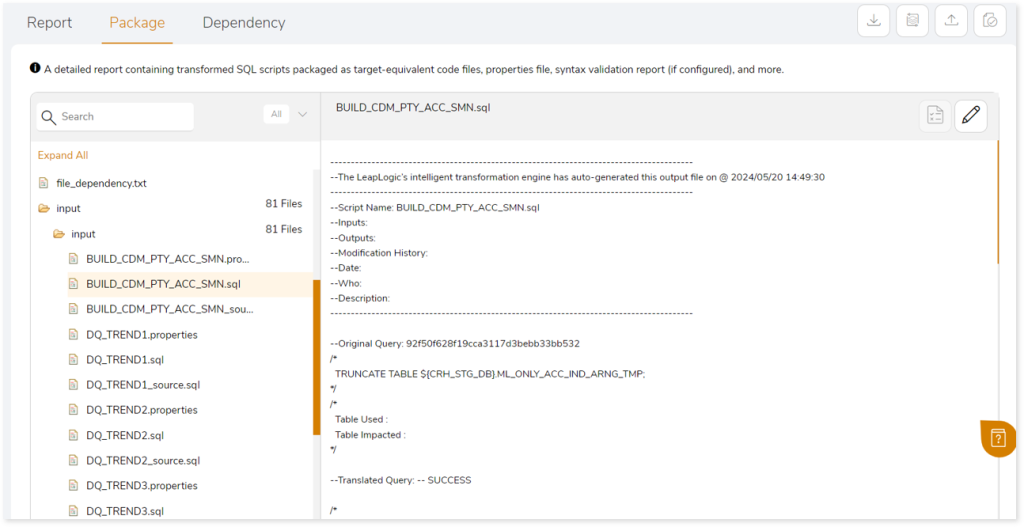
In the Package section, you can also see Transformation_Report.xlsx file which contains a comprehensive report of the transformation, and queries. The Query Summary sheet in Transformation_Report.xlsx file provides information about the queries segregated by statement types including statistical information regarding its count, auto-converted queries, and manually corrected queries.
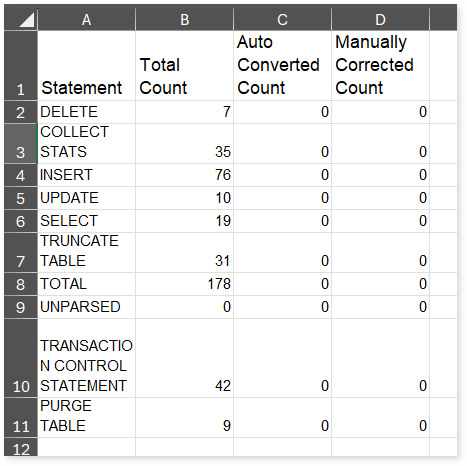
The Transformation Report sheet lists all the queries along with its type, auto generated query, status, complexity and more.
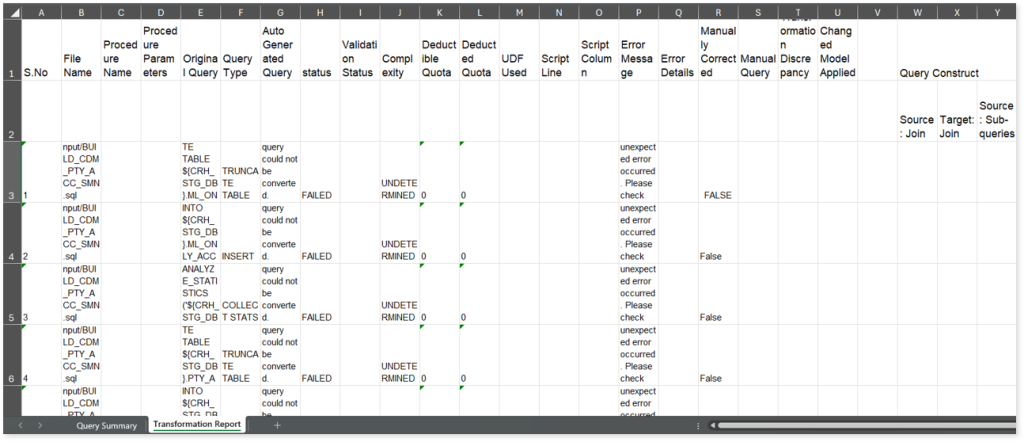
You can apply:
Dependency
It illustrates the complex interdependencies between various enterprise workloads through a process lineage graph. Whenever one database is dependent upon another, or when one table is dependent upon another, to demonstrate this relationship, lineage or dependency graphs are generated.

Assessment Report
This section displays a summary of all the statement types in the transformation stage.
